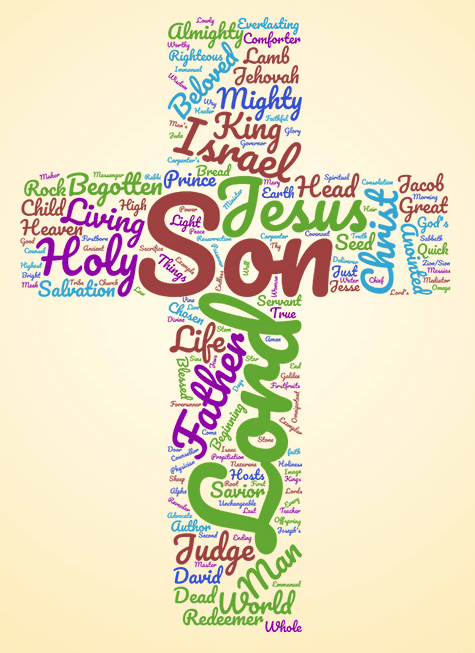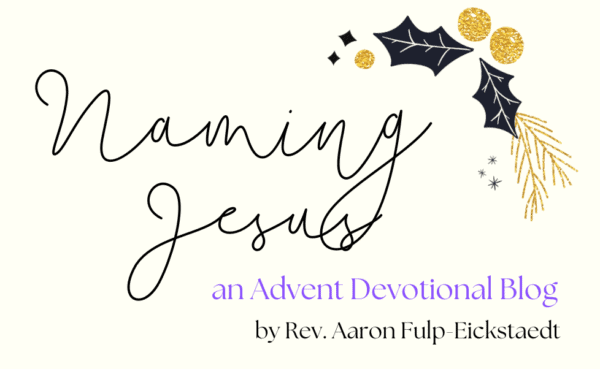
December 25, 2023
The Word Made Flesh
And the Word became flesh and lived among us, and we have seen his glory, the glory as of a father’s only son, full of grace and truth. John 1:14
“The Word became flesh and lived among us.” That’s the glorious declaration we make in our Christmas Eve services. John’s Gospel proclaims that the Word that was made flesh was in the beginning with God, and was God, and all things were made through him. Jesus, the One whose many names we have pondered over the last 25 days, is that Word incarnate.
Two ideas I return to again and again in my work as Immanuel’s pastor are 1) that we are called as a congregation and as individuals to embody God’s love in the world, and 2) that, though death and sin and evil get a powerful word, love gets the last word.
That’s the Word that became flesh and dwelt among us. That Word dwells among us still: in the Hypo shelter and in international mission work in Cuba and elsewhere; in memorial service receptions and in cards and calls and visits; in the camaraderie found in small groups and in tag tree gifts and holiday baskets and open hearts and open homes. The Word made flesh is there in the genuine apology and in the forgiveness given; in the work of all of our task groups and committees; and in the music of the organ and choirs and bells. The Word made flesh can be found in Twelve Step rooms and inter-faith cooperation; in generosity and grace wherever they can be found; and in those who work for justice, reconciliation, and peace.
Thanks be to God for the Word made flesh! Merry Christmas!
Prayer: O Word made Flesh, we know you by many names. We thank you for the opportunity to participate in incarnating Divine Love. Empower us to be about that work all through the year. Amen.
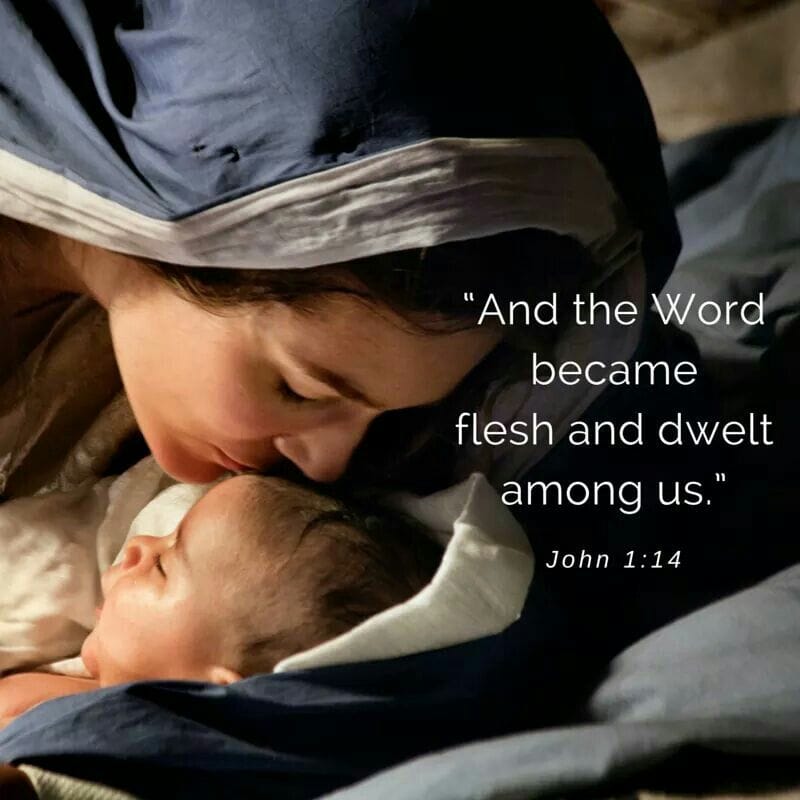
December 24,2023
Wonder(ful) Counselor
For a child has been born for us, a son given to us; authority rests upon his shoulders; and he is named Wonderful Counselor, Mighty God, Everlasting Father, Prince of Peace. His authority shall grow continually and there shall be endless peace for the throne of David and his kingdom. He will establish and uphold it with justice and with righteousness from this time onwards and forevermore. The zeal of the Lord of hosts will do this. Isaiah 9:6-7
When he said this, all his opponents were put to shame; and the entire crowd was rejoicing at all the wonderful things that he was doing. Luke 13:17
One of my favorite secular Christmas songs is, “It’s the Most Wonderful Time of the Year.” Setting aside that for some people this season can be particularly painful for a variety of reasons (including recent loss or current family, financial, or health struggles), Christmas does seem to be a time when people are more likely to connect with childlike wonder and enchantment.
One place I experience that wonder is in the Immanuel sanctuary every Christmas Eve. From the 4:00 Family and Children service on, this place has a certain energy and excitement about it. There is wonder in the air. At 6:00 we hear the full choir, the organ, the harp and percussion… The full-throated singing of carols by a sizable congregation… The space aglow in candlelight as we come to the close of that service… Then at the end of the 10:30 service, the lights coming up to the exhilarating cacophony of bells and the singing of Joy to the World. If you’re looking for an experience of awe and wonder, Christmas Eve services at Immanuel deliver.
When Isaiah wrote of the child who “who has been born for us” who would among other things be named Wonderful Counselor, the birth of Jesus was still in the distant future. I love the idea that our SALT Project booklet expresses that Jesus would be not just a wonderful counselor, but a counselor in the ways of wonder.
For me wonder is about noticing. It’s about having the capacity to be amazed. It is summed up in the awestruck question that Mary asks when Gabriel announces that she will give birth to the Christ Child—“How can this be?” I had that experience beholding the beauty of God’s creation in various national parks over the first part of this summer. I had it when the Immanuel congregation quickly came together and furnished my Dad’s room at Chesterbrook by the end of July. I had it when I saw how many people served at the Hypo shelter this week, and when the free store we provide for our guests was restocked by Thursday (after being totally “sold out” on Monday).
There’s so much that can move us to the experience of awe and wonder in life. All we have to do is open our hearts and minds and senses to it, like certain poor shepherds who heard the angels in the Bethlehem hills and came to adore the infant Jesus.
Prayer: Wonderful Counselor on this holy night, bring me back in touch with awestruck wonder. Grant me an enchantment of heart that opens me to amazement and a real sense of Your abiding and transforming presence. Amen.
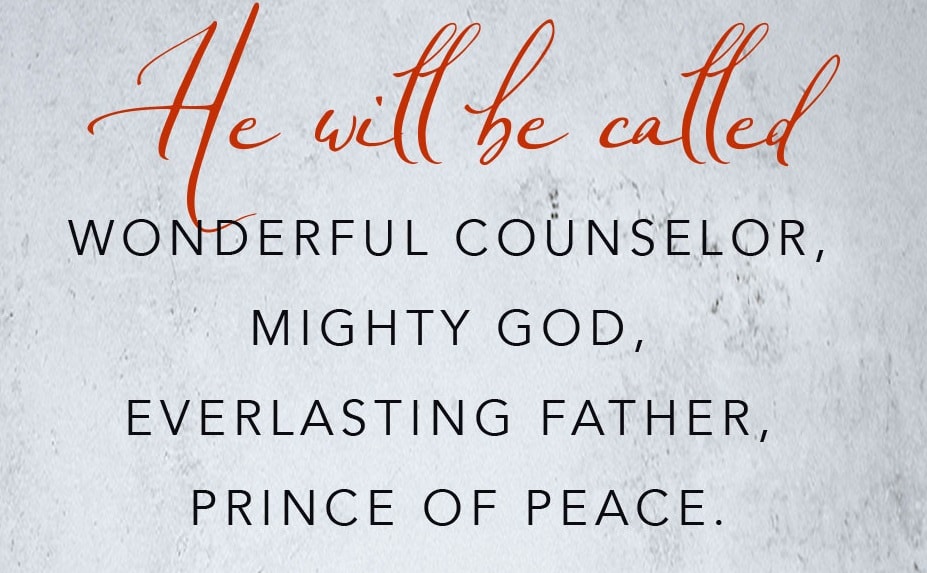
December 23, 2023
Rabbi
When Jesus turned and saw them following, he said to them, ‘What are you looking for?’ They said to him, ‘Rabbi’ (which translated means Teacher), ‘where are you staying?’ He said to them, ‘Come and see.’ John 1:38-39a
One of the names assigned to Jesus in the gospels is Rabbi, or teacher. The Pharisee Nicodemus comes to him by night and tells him, “Rabbi, we know you are a teacher sent from God.” (John 3:2) The disciples more than once address him as Rabbi or Teacher. Whenever they do, you can be assured that he is about to lay something important on them. Jesus had a lot to teach them.
Even people who intellectually struggle with many of the other names given to Jesus in scripture feel at ease calling him a rabbi. Few would dispute that he was a spiritual teacher who had followers. It’s taking the content of Jesus’ teaching to heart that is the hard part.
Loving your enemies and praying for people who persecute you is tough to live. Seeing blessing in being meek or mourning or merciful runs counter to a culture that judges success in terms of getting all you want. Taking up your cross, or even just laying down your ego, is no walk in the park. Caring enough about other people’s wellbeing that it costs you something is a difficult teaching.
In talking about the importance of having a good teacher, Dan Rather once said, “The dream begins with a teacher who believes in you, who tugs and pushes and leads you to the next plateau, sometimes poking you with a sharp stick called 'truth’.” Our Rabbi Jesus is a teacher like that. Thanks be to God.
Prayer: Rabbi, we know you are a teacher sent from God. Keep believing in us. Tug us, push us, lead us forward in our spiritual growth so that our lives more and more bear witness to Your kingdom’s priorities. Amen.

December 22, 2023
Alpha and Omega, Living One
When I saw Him, I fell at His feet like a dead man. And He placed His right hand on me, saying, “Do not be afraid; I am the first and the last, and the living One; and I was dead, and behold, I am alive forevermore.” Revelation 1:17-18
I am the Alpha and the Omega, the first and the last, the beginning and the end. Revelation 22:13
In the visions of John of Patmos recorded in the Book of Revelation, one thing seems clear. The Jesus we encounter there regards himself as more than merely a carpenter’s son. In calling himself the first and the last letters of the Greek alphabet, Jesus is claiming that there is something about his very identity that is eternal in nature.
This perspective is not unique to the last book of the Bible. John’s Gospel says he was there as the Word at the beginning of creation—and that the world was made through him. Matthew’s Gospel portrays him as the king who will separate the sheep from the goats on Judgment Day on the basis of how they treated the most vulnerable in society. Revelation calls him the Alpha and the Omega; the first and the last and the living one.
I’m comforted by the idea that Jesus was the Alpha and Omega incarnate. It helps me reflect on where I’ve noticed the work of the Living Divine in my past. It also calls to mind a saying that I turn to from time to time in my own life—“I don’t know what the future holds, but I know who holds the future.” I need not be afraid of what will come, because it is in the hands of the One who goes before me. The future is in God’s hands. And so am I. (And so are you, reader, so are you).
More than that, the One who was incarnate in Jesus is the Living One, present in the here and now. As near as my own breathing and heartbeat. As close as the need of a neighbor. As tangible as the listening ear of a friend, the wisdom of an elder, and the wonder of a child. They say that the past is history, and the future is mystery. Today is a gift. That’s why they call it the present.
Prayer: Alpha and Omega, first and last and living one, help me not only to trust that You have been with me in the past and that You will go with me into the future, but also that you are here with me. Right. This. Very. Moment. Help me to live it—and all my moments and days—as fully as possible. Amen.

December 21, 2023
The Carpenter’s Son
He came to his hometown and began to teach the people in their synagogue, so that they were astounded and said, “Where did this man get this wisdom and these deeds of power? Is not this the carpenter’s son? Is not his mother called Mary? And are not his brothers James and Joseph and Simon and Judas? And are not all his sisters with us? Where then did this man get all this? And they took offense at him. Matthew 13:54-57
When the people at his hometown synagogue in Nazareth referred to Jesus as the carpenter’s son, it was a way of denigrating, or at least discounting, him. We know this guy. We watched him grow up. We know his family. Who does he think he is, anyway? He’s just the carpenter’s son.
Of all the names assigned to Jesus, that may be the most relatable. It’s not a grand metaphor like Light of the World or True Vine. It’s not royal like Lord or Prince of Peace. It doesn’t feel transcendent like Wisdom from on High or Immanuel or Daystar. He’s just Jesus, son of Joseph, the regular guy who grew up learning his father’s trade in Nazareth.
My wife Judith’s maternal grandmother used to caution against, “Gettin’ above your raisin’.” We, who regularly hear the birth narratives we tell on Christmas Eve, know that Jesus’ parentage (in Matthew’s and Luke’s gospels) involved the overshadowing of the Holy Spirit. This meant that the carpenter Joseph would be surprised indeed when Mary turned up pregnant. Without the benefit of such insider information, and hindered by the familiarity that breeds contempt, it might have been easy for his neighbors to write off Jesus as someone who had gotten too big for his breeches.
In a very real way, Jesus’ was always the carpenter’s son. The one who grew up among the common folk in the backwater, hick town of Nazareth—and could understand and empathize with their plight. The one who some people denigrated as nothing more than the child of a common laborer, who couldn’t teach them anything.
Our tradition says that Jesus was a human being, sure enough. But it also wants to say that he was fully divine. Carpenter’s son and Carpenter of Creation in the same package. What made that particular carpenter’s son—that particular human being—so transformational in human history is that he was so attuned to the fact that he carried the Living Divine within him.
Rabbi Simcha Bunim of Peschicha once said, "Every person should have two pockets. In one pocket should be a piece of paper saying: 'I am but dust and ashes.' In the other pocket should be a piece of paper saying: 'For my sake was the world created.'" In other words, I’m a mortal human being and I am God’s beloved child both. Jesus understood that. And, even better, he understands us.
Prayer: Carpenter’s son and Carpenter of Creation, teach me to so honor the Truth you embodied that I too come to know that I am more than the child of earthly parents. I am Your child. A child of God. Amen.
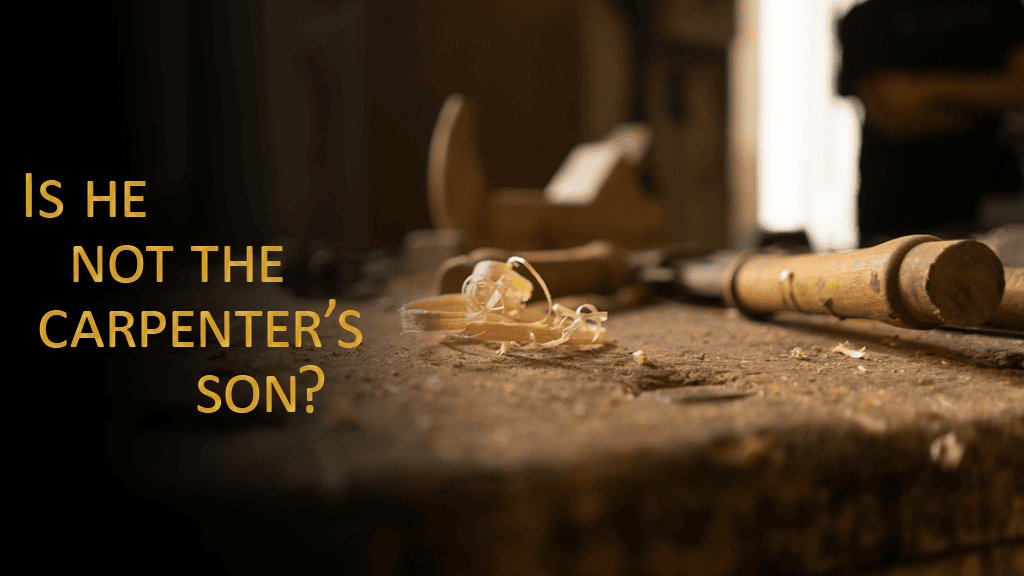
December 20, 2023
The True Vine
‘I am the true vine, and my Father is the vine-grower. He removes every branch in me that bears no fruit. Every branch that bears fruit he prunes to make it bear more fruit. You have already been cleansed by the word that I have spoken to you. Abide in me as I abide in you. Just as the branch cannot bear fruit by itself unless it abides in the vine, neither can you unless you abide in me. I am the vine, you are the branches. Those who abide in me and I in them bear much fruit, because apart from me you can do nothing.’ John 15:1-5
In the seventh and last of the “I Am” statements in John’s Gospel, Jesus’ horticultural self-designation brings to mind the words of the prophet Isaiah: “A shoot will come out from the stump of Jesse, and a branch shall grow out of his roots.” “I am the True Vine,” Jesus tells his disciples in the Upper Room. If you want to bear fruit, you need to stay connected to the vine.
I always take genuine delight in the way the church attendance swells as we move through Advent. People who are not or have ceased to be regular church attenders feel that tug to be in the sanctuary come Christmas Eve. I think something in them longs for that connection—or re-connection—to the holy that worship, service to others, and engagement with a community of faith can offer. That’s a good thing.
When Jesus’ referred to himself as the True Vine and urged his first disciples (and those of us who would come after them) to abide in him, he was calling them to be vigilant about attending to their spiritual lives. It is easy to let spiritual practices slip in the busy-ness of day in and day out existence. In the Twelve Step rooms I spend some time in every week, we talk about how, when it comes to remaining sober, we have a daily reprieve contingent upon the maintenance of our spiritual condition. It is important to regularly get together with others who are intentional about doing that. You might even say it’s like branches staying connected to a vine.
What sorts of practices do you engage in that help you stay connected to the True Vine? Regular communal worship? Daily devotional reading? Prayer and meditation? Study groups or 12 step meetings that center on tending to your soul? Regular conversations with a spiritual friend? The humble practice of asking for or extending forgiveness? It is conscious connection to that power that comes from beyond us, the one I believe Jesus came to embody, that enables us to bear fruit.
Regardless of how connected to the vine you happen to feel right now, this is a great time of year to commit to working on that conscious connection. Attending a Christmas Eve service can be a great way to start.
Prayer: O True Vine, source of life and love, let my branch stay firmly connected to you. Whenever I feel cut off, graft me back in or let me branch out in newness of life. May my life bear the fruit of love, joy, peace, patience, goodness, kindness, faithfulness, gentleness, and self-control. Amen.
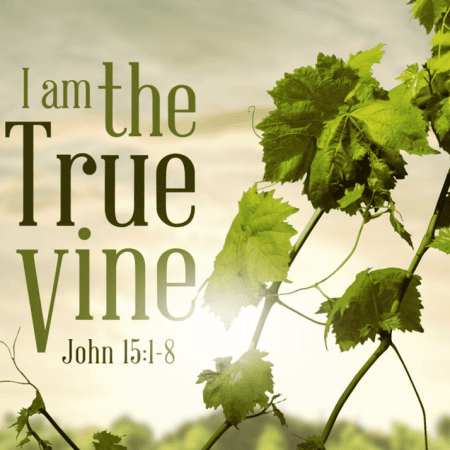
December 19, 2023
The Way, The Truth, The Life
Thomas said to him, ‘Lord, we do not know where you are going. How can we know the way?’ Jesus said to him, ‘I am the way, and the truth, and the life. No one comes to the Father except through me. If you know me, you will know my Father also. From now on you do know him and have seen him.’ John 14:5-7
In John 14, we encounter another of Jesus’ seven “I Am” statements. Jesus is in the Upper Room with his disciples on the night before his crucifixion. He has just told them that he is going ahead of them to his Father’s house to prepare a place for them. Now he calls himself the Way, and the Truth, and the Life.
That’s quite a name. It has led to no end of spiritual harm inflicted by those who feel confident that they know exactly what it means when Jesus says that no one comes to the Father except through him. But I am unwilling to let the name go, because I trust that the way to more fully experience one’s identity as a child of the Living Divine is to live in the Way Jesus modeled. The practice of love, compassion, justice, and mercy—no matter what a person’s religious beliefs or lack thereof—this is the way to experience eternity here and now, and not just in a hereafter.
Eugene Peterson wrote once that the only way to get the Jesus life is by doing the Jesus truth in the Jesus way. No one experiences that kind of life all the time. That’s why I like the metaphor of the Way—a path, a pilgrim journey, a road we travel. When I trust that I am beloved—as is everyone I meet—and then do my best to live out what love for others looks like (especially the most vulnerable among us), I am on the Way.
As I said in our dear Nancy Schuler’s memorial service, when you live that Way, you have already arrived. Even if you feel like the train to glory is moving too slowly.
How are you living the Jesus truth in the Jesus way?
Prayer: Help me, Holy One, to follow in the Way of vulnerable love. Let my life bear witness to the power of that love. Amen.
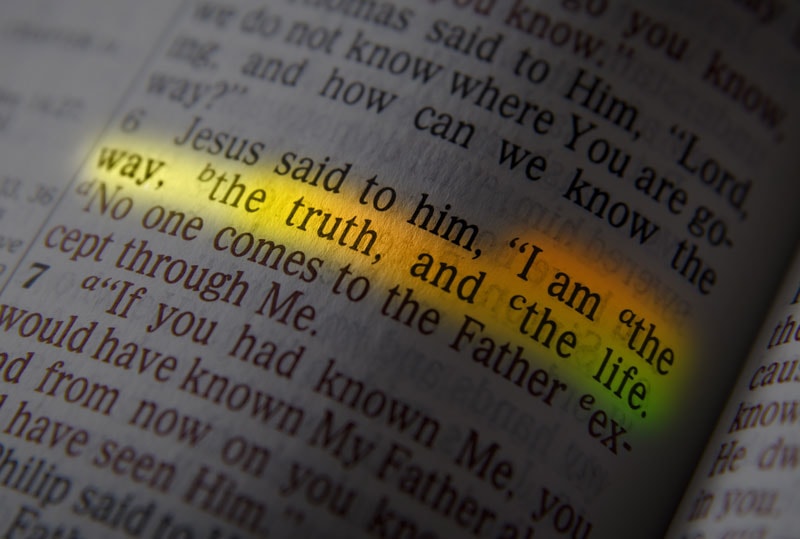
December 18, 2023
The Resurrection and the Life
Jesus said to Martha, ‘I am the resurrection and the life. Those who believe in me, even though they die, will live, and everyone who lives and believes in me will never die. Do you believe this?’ She said to him, ‘Yes, Lord, I believe that you are the Messiah, the Son of God, the one coming into the world.’ John 11:25-27
There are seven “I Am” statements in the Gospel of John. Jesus names himself the Bread of Life, the Gate for the Sheep, the Good Shepherd, the Light of the World, the Resurrection and the Life, the Way and the Truth and the Life, and the True Vine. Jesus’ use of “I am” to preface those self-designations echoes back to Moses’ encounter with Yahweh at the burning bush. “I am that I am,” the Divine voice says to Moses. “I am beyond your control.”
Names, and words in general, are tools we use to try to capture, contain and control something that cannot be contained in its totality. Which may be why we have been given so many names for Jesus. That is our attempt at trying to “eff” (or fully know) what is ultimately ineffable.
Nowhere do we bump up against the ineffable more than in the Resurrection. It strains our reason to trust that a human being could literally be raised from the dead after being in a tomb. And yet, that claim is central to our larger Christian story. Jesus tells a grieving Martha that her dead brother will rise again and then says, “I am the Resurrection and the Life.” His triumph over death at Easter bears witness to that.
I am the Resurrection and the Life. Of all the names of Jesus, this one may be the hardest to grasp. But maybe the promise that the Living Divine is stronger than death, sin and evil isn’t something we are meant to grasp. Maybe it’s something we’re not intended to capture, contain or to “eff.” Maybe it’s something we’re simply meant to trust enough that we act as if it were true. Because somehow, someway, it is.
Prayer: Holy One, in this Advent season as well as at Easter, help us to trust where we cannot fully understand. When death, division, despair, and destruction seem to have the final say, let us live in the hope of Resurrection. Amen.
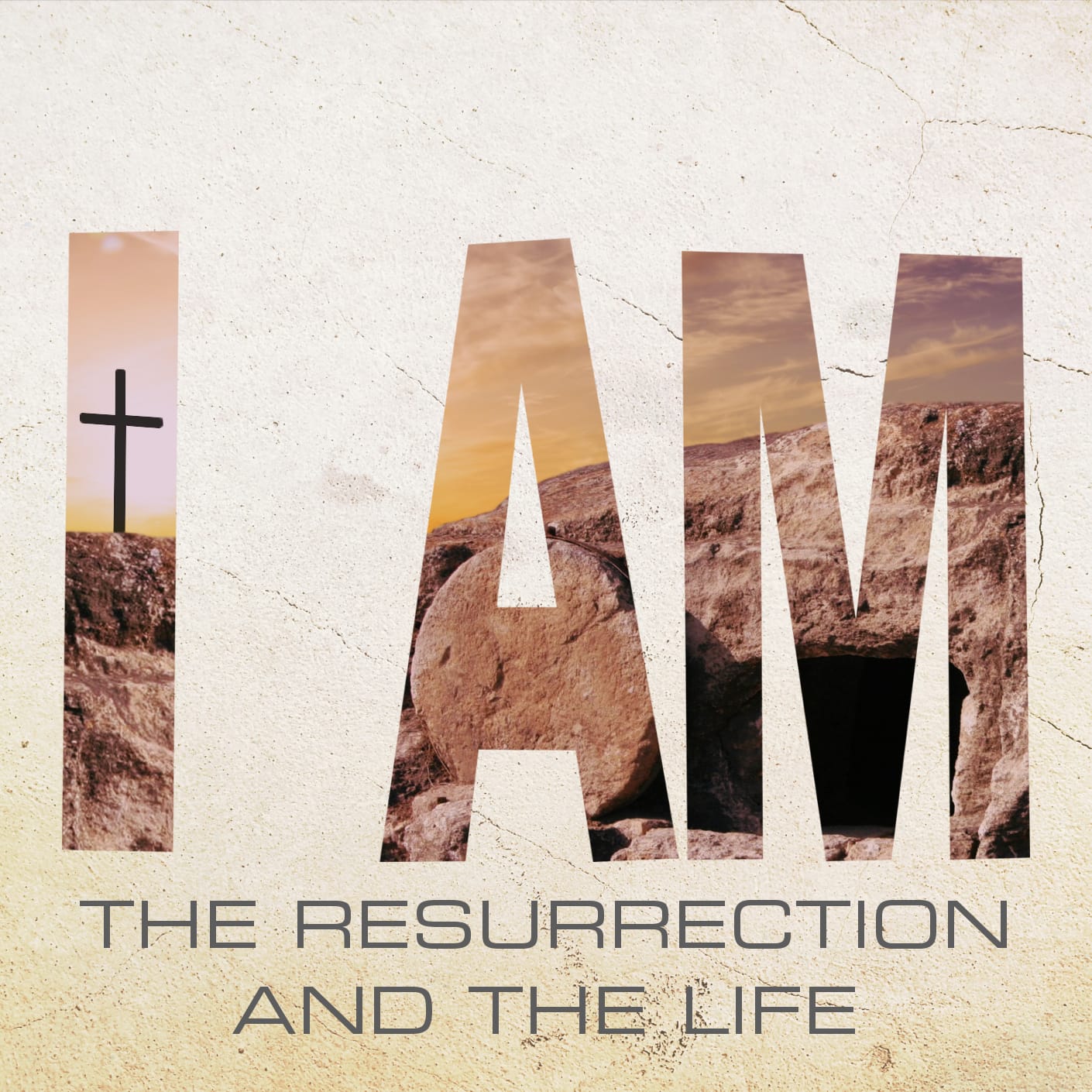
December 17, 2023
The Light of the World
There was a man sent from God whose name was John. He came as a witness to testify to the light, so that all might come to trust through him. He himself was not the light, but he came to testify to the light. The true light, which enlightens everyone, was coming into the world. John 1:6-9
Again Jesus spoke to them, saying, “I am the light of the world. Whoever follows me will never walk in darkness but have the light of life.” John 9:12
One of my favorite moments at Immanuel every year takes place during the Christmas Eve candlelight service. As we start singing “Silent Night,” the ushers light their candles from the Christ candle. The lights go down in the sanctuary as the ushers in turn light the candles of people sitting at the end of each pew, who then pass the flame onto the people next to them. The sense of awe and wonder that fills my heart—and the hearts of so many—is palpable. For my benediction, I will say, “The light shines in the darkness and the darkness can never overcome it.”
The Light shines on—and all the more as we share it—but it stems from something beyond us. It’s not something we gin up by ourselves, like somebody futilely trying to light a wet match. Which is why I love the way John’s Gospel speaks of John the Baptist: “He himself was not the light, but he came to testify to the light. The true light, which enlightens everyone, was coming into the world.” John wasn’t confused about his role. He himself wasn’t the light, but he sure pointed people to the Light.
Speaking of pointing to the Light, in a few hours, our annual Hypothermia Shelter will open. For this coming week leading up to Christmas, our church will be a place for people experiencing homelessness to get good meals, warm hospitality, and a place to lay their heads. As usual, there are a lot of people who will be helping with this project (and I think there are still opportunities should you want to serve, dear reader). It’s bigger than any one person. The project, and all the hours that go into it, is a living embodiment of the truth we testify to in our candlelight Christmas Eve services. The light that we are sharing is the light of the Living Divine that recognizes the divine spark in ourselves and each person we encounter, regardless of their station in life.
One of my favorite movies is Scent of A Woman, starring Al Pacino as the blind Lt. Col. Frank Slade. In one scene, his young prep school caregiver Charlie Simms is trying to talk him out of ending his life, and says, “You messed up, okay. Everybody does it. Get on with your life.” To which Pacino’s character yells (Pacino always yells at some point), “What life? I got no life. I’m in the dark. Do you understand? I’m in the dark!” But Charlie won’t leave him there. He’s come to care deeply for the old curmudgeon, and he won’t abandon him. For a breathless moment, we’re not sure if that’s enough, even as Charlie shines bright with the light of a love that has to have come from beyond him onto Lt. Col. Slade.
To say that the Light shines in the darkness doesn’t mean that hard things won’t happen or there aren’t losses to mourn. It doesn’t mean that wars will cease or that the chemo will work every time or that addiction doesn’t sometimes get the upper hand. It means that in the middle of it all, beyond all we can muster on our own, the Light of Divine Love keeps shining.
Where have you seen that Light shining?
Prayer: Christ, be our light! Shine in our hearts, shine through the darkness. Christ, be our light, shine in us, and in our church, and in this world you deeply love.

December 16, 2023
The Prince of Peace
For a child has been born for us, a son given to us; authority rests upon his shoulders; and he is named Wonderful Counselor, Mighty God, Everlasting Father, Prince of Peace. His authority shall grow continually, and there shall be endless peace for the throne of David and his kingdom. He will establish and uphold it with justice and with righteousness from this time onward and forever more. Isaiah 9:6-7
Peace I leave with you; my peace I give to you. I do not give to you as the world gives. Do not let your hearts be troubled, and do not let them be afraid. John 14:27
This is quite a time in our world to be speaking about the arrival of a Prince of Peace. War in Ukraine and in Gaza, saber-rattling in the South China Sea, armed conflicts in various other parts of the world, serious political fractures in our own country, increases in hate speech and gun violence—all of these things and more point more to the absence of peace than the presence of it. Yet the prophet Isaiah proclaims some 700 years before the birth of Jesus that a child has been born who is named, among other things, Prince of Peace.
Across the millennia of human history, peace between nations and groups and even in families has always seemed elusive. In some situations, it has felt well nigh impossible. Yet Isaiah dared to speak of the birth of the Prince of Peace, who would bring endless peace established and upheld with justice and righteousness. When I read those words, part of me says, “Tick, tock. We’ve been waiting. Isn’t it about time we see some results?” Many of you would join me in that sentiment, I’m sure.
As I said in a recent sermon, in Advent times like these we wait—but we wait actively. We each play our part, one action at a time, to build the sort of world we’d like to see, starting with our own lives and our own little corner of the globe. Jill Jackson-Miller and Sy Miller were on point when they wrote these lyrics in 1955: “Let there be peace on earth, and let it begin with me… Let there be peace on earth, let this be the moment now, with every step I take, let this be my solemn vow: to take each moment, and live each moment, in peace eternally. Let there be peace on earth and let it begin with me.”
I’m not confident we’ll see any sort of overarching global peace in my lifetime. What I do know is that I can do my part to internalize and embody what the Apostle Paul called “the peace that passes all understanding.” It is that peace that Jesus told his disciples in the upper room that he was giving them, a peace that could help them not be controlled by fear. I can do my part to be kind, and humble, and to contribute to and work for the well-being of those who are unjustly treated, under cared for, or under threat. I can do my part to follow the Prince of Peace, keeping in mind that, as Dorothy Thompson wrote, ““Peace is not the absence of conflict but the presence of creative alternatives for responding to conflict -- alternatives to passive or aggressive responses, alternatives to violence.”
What steps are you taking to follow the Prince of Peace in your life?
Prayer: Prince of Peace, let this be the moment, now. With every practice I engage in and step I take, let me live in and embody the peace that comes from recognizing our eternal connection to the Living Divine and to all with whom we share this planet. Amen.
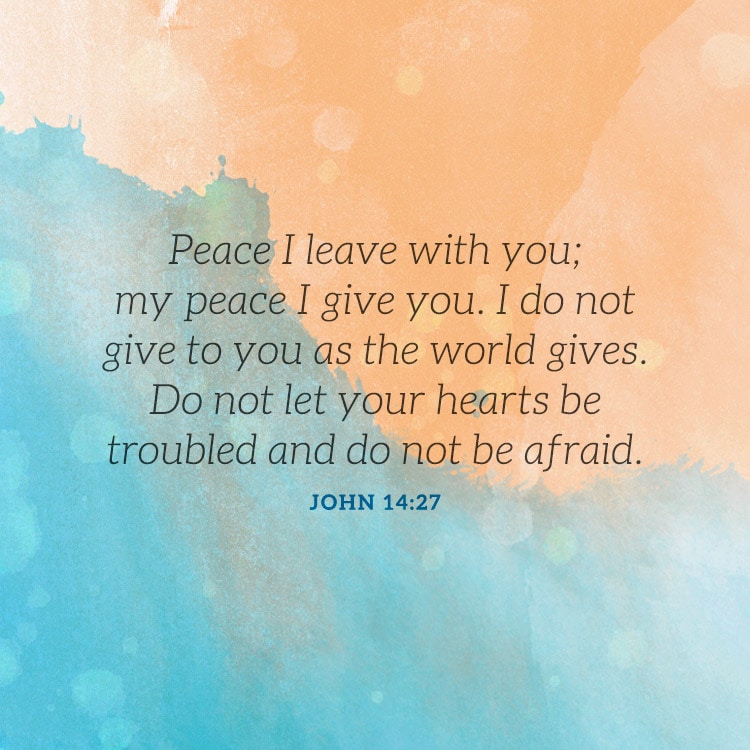
December 15, 2023
The Bread of Life
Jesus said to them, “I am the Bread of Life. Whoever comes to me will never be hungry, and whoever trusts in me will never be thirsty.” John 6:35
One of the interesting things about the various names given to or assumed by Jesus in the New Testament is how many of them are used or somehow foreshadowed in the birth narratives in Matthew and Luke. Take, for instance, Jesus’ self-designation as the Bread of Life. Did you know that the name Bethlehem, the place of Jesus’ birth, literally means “House of Bread?”
One Christmas Eve near the beginning of my ministry at Immanuel, I had the communion table prepared for the Lord’s Supper for each of the services. At a certain point during worship, a young volunteer dressed in the blue and white garb associated with Mary walked up the aisle with a swaddled cloth in her arms, then unwrapped it and placed it on the plate, revealing not a baby, but a loaf of bread. It was a dramatic way to illustrate that this baby whose birth we were celebrating—and will celebrate again in nine days—would grow into the man who would say, “I am the Bread of Life.”
What exactly did Jesus mean by using that metaphor—and then going on to say that whoever comes to him in trust will never be hungry or thirsty? In John 6, the crowds who chased after him and tried to make him king after he fed the 5,000 prove to be “metaphorically challenged.” They think he’s speaking about eating literal bread, not ingesting the life-nourishing way he had come to teach and embody. They think he’s talking about a type of cannibalism. Nearly all of them write it off as a difficult teaching that cannot be accepted, then walk away. When Jesus turns to the twelve disciples and asks, “Are you also going to leave?” Peter replies, “To whom can we go? You have the words of eternal life. We have come to trust and know that You are the Holy One of God.”
When I say Jesus is the Bread of Life, and when we share in the Lord’s Supper, I am acknowledging where I find real spiritual nourishment. In his life and teaching, in the stories told by and about him, in the way he died and in the way that his death did not get the last word, in being part of a community gathered in his name, and in his ongoing presence among us, I am nourished. I find spiritual nourishment worth taking in and digesting — the kind that provides me with energy for a life of service and comfort when I am sorrowful, hope when I am discouraged, wisdom when I am perplexed, and connection when I feel utterly alone. That’s good stuff. It makes me think of a quote attributed to several people that sharing the good news is just one hungry beggar telling another hungry beggar where to find bread.
How have you found yourself fed by the Bread of Life?
Prayer: Bread of Life, let me ingest and internalize your way of life in such a way that it —and You—become part of my very being. Let me be attuned to eternity here and now, this Advent and every day. Amen.
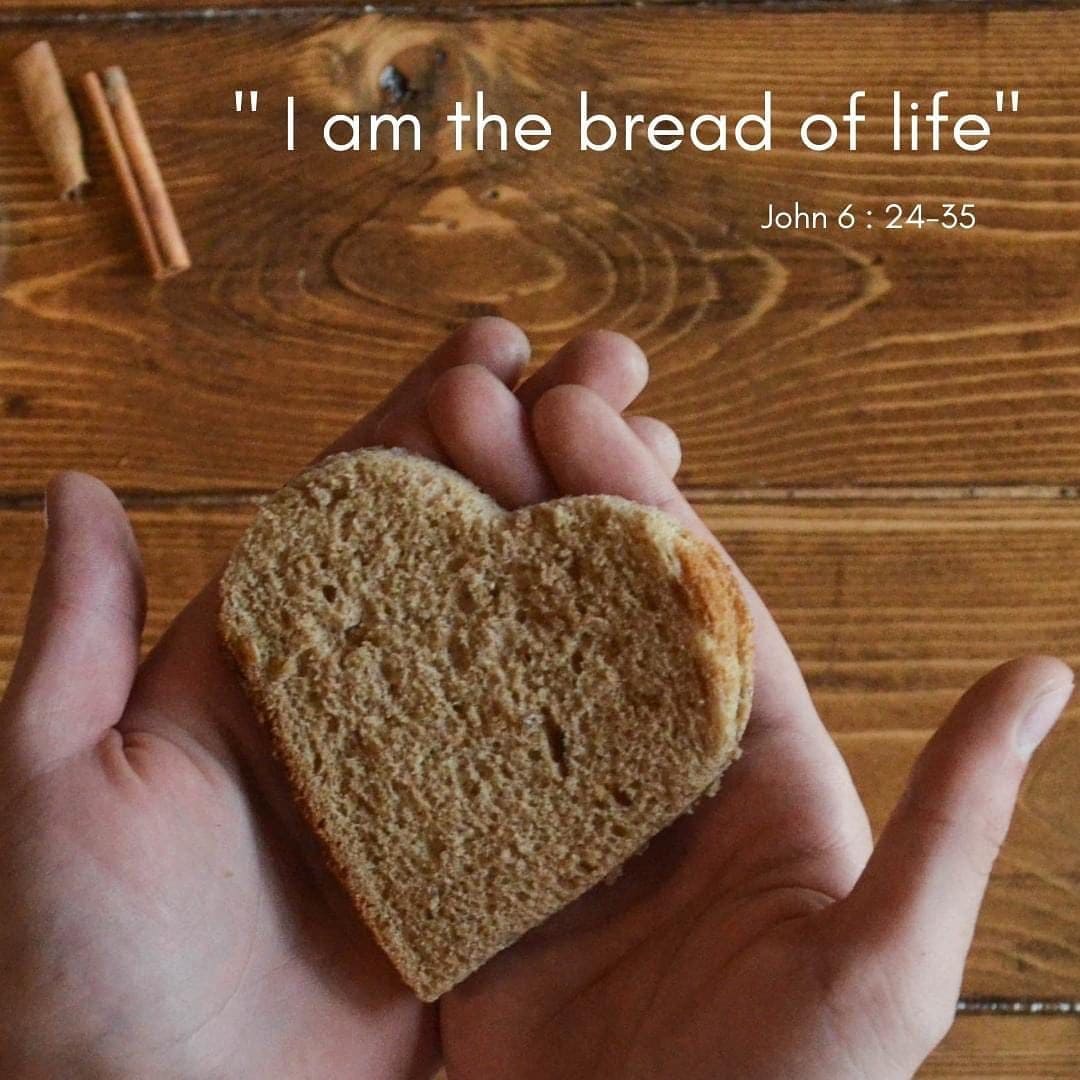
December 14, 2023
Our Great High Priest Groks Us
Since, then, we have a great high priest who has passed through the heavens, Jesus, the son of God, let us hold fast to our confession. For we do not have a high priest who is unable to sympathize with our weaknesses, but we have one who in every respect has been tested as we are, yet without sin. Let us therefore approach the throne of grace with boldness, so that we may receive mercy and find grace to help in time of need. Hebrews 4:14-16
The letter to the Hebrews speaks of Jesus as our Great High Priest. To carefully trace the author’s argument about how exactly this is so and why that matters takes more time than this space offers. Such a tracing would include how the High Priest mediates a new covenant, and continually intercedes for us, and long ago offered himself as a once and for all sacrifice to atone for sin. For all of the intricacy of the argument, and I’m not doing it justice, the bottom line is that we can trust God’s grace because Jesus himself is the high priest forever.
What I love about the notion of Jesus as the great High Priest is how Hebrews describes him as one who “groks” us, to use a word that Robert Heinlein created in his book Stranger in a Strange Land. The OED summarizes the meaning of grok as “to understand intuitively or by empathy, to establish rapport with.” This gives special resonance to the statement, We do not have a high priest who is unable to sympathize with our weakness, but we have one who in every respect has been tested as we are, yet without sin. The One who intercedes for us, and sacrificed once and for all for us, really gets us. The soul that was incarnate in Jesus understands our human condition.
It's a long journey from the Gospel of Luke’s baby crying in a manger to Hebrews’ high priest interceding for us eternally, but what allows me to hold those two together is that sense they convey that the Living Divine groks us—and flows in and through and around and beyond us. And yes, sometimes even in spite of us. So we can approach the throne of grace with boldness, trusting that we will receive mercy and find grace.
Some years ago, Sally Field received an Academy Award for Best Actress for the movie Places in the Heart. I remember well watching her acceptance speech, where she said, “You like me! You really like me!” That feeling of basking in the adulation of a crowd is awesome but fleeting, however. Because it all seems dependent on our latest achievement.
Which may be why I love the idea that Jesus is a high priest who groks me—and loves me just the same. But more than that, the Great High Priest calls me to practice that for myself and the rest of humanity.
Prayer: Great High Priest, You grok me. Help me to trust in your grace and mercy. Let it direct the way I respond to others in my life, this day and always. Amen.
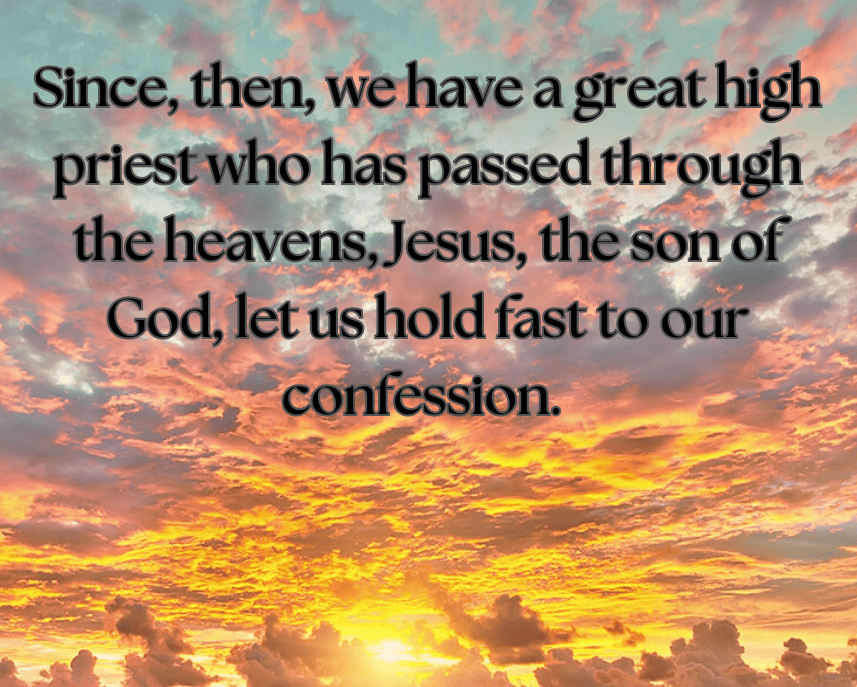
December 13, 2023
The Lamb of God
The next day he saw Jesus coming towards him and declared, ‘Here is the Lamb of God who takes away the sin of the world!' John 1:29
Today we move from Jesus calling himself the Good Shepherd and the Gate of the Sheep to John the Baptist calling him the Lamb of God, or in Latin, Agnus Dei. The transition from Shepherd to Lamb marks a shift from Guide and Protector to One Who is Sacrificed.
There are a number of theories of Atonement, or what allows us to be “at one with” the Living Divine. One of those theories, substitutionary atonement, is based on the practice of animal sacrifice in ancient Jewish priestly tradition. It builds on the idea that Jesus as the sacrificial lamb stands in for us, receiving the punishment that we humans deserve for our sin. “Behold, here is the Lamb of God who takes away the sin of the world.”
There’s no pretending that such language isn’t found in the New Testament, but for me, the power of the Lamb image isn’t found in the idea that somebody had to pay the price for sin in order to appease God’s hunger for justice. That makes God sound bloodthirsty and trapped within a system of domination. No, what makes the Lamb image speak to me is what it communicates about what brings people together—and what helps people feel connected to the love which is at the core of the Living Divine. It doesn’t happen through domination and force. It doesn’t happen through threats or appeasement. It happens through vulnerability—and vulnerability always involves some degree of sacrifice.
When I am vulnerable, when I tell you what matters deeply to me, I let down my guard. I sacrifice my need to be right all the time. I sacrifice any sense of being “better than” for the sake of genuine and humble connection. I sacrifice radical independence for mutual interdependence. With or without an overlay of substitutionary atonement, the Lamb of God brings me into a sense of union with the Living Divine by modeling vulnerability. This includes the sort of vulnerability that could go to a cross and still forgive those who put him there.
Rev. Benjamin Cranmer must have been thinking of the Lamb of God when he wrote, “Jesus laying down his life out of love for the world rather than conquering it with angel armies to force it to obey his will is the eternal critique to any Christian theology that believes it must conquer the culture for Jesus rather than let his love conquer our own hearts.”
Prayer: O Lamb of God who takes away the sin of the world, have mercy on us. O Lamb of God, help us to embrace and follow in Your way of vulnerable love. O Lamb of God who takes away the sin of the world, grant us Your peace. Amen.
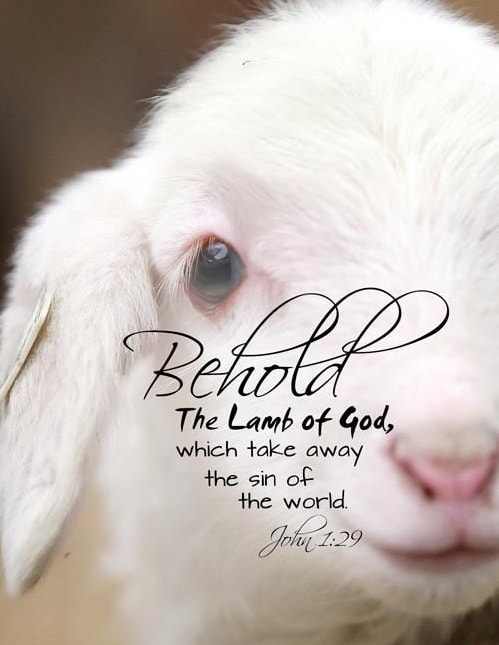
December 12, 2023
The Gate for the Sheep
So again Jesus said to them, “Very truly, I tell you, I am the gate for the sheep. All who came before me are thieves and bandits; but the sheep did not listen to them. I am the gate. Whoever enters by me will be saved and will come in and go out and find pasture. The thief comes only to steal and kill and destroy. I came that they may have life and have it abundantly. John 10:7-10
Jesus not only called himself the Good Shepherd, he also called himself the gate for the sheep. I read somewhere that ancient shepherds would place themselves as the entrance to a sheep enclosure when they gathered the herd in for the night. In place of an actual wooden door, the shepherd effectively became a human door. Any predator would have to go through them to get to the sheep. Any sheep would have to go through them to leave the pen.
I can’t vouch for the factuality of that idea, and there aren’t any ancient shepherds around to ask about it, but I do love the notion that the door or gate into a life that is cognizant of the Living Divine is made of flesh and not wood or stone. Love, compassion and justice are not inanimate. They are values that are embodied—made real in human bodies and lives. The way into an intentional life in the Spirit is not through the mind and its good ideas alone. And it’s not solely through the heart and the way we feel Life in the Spirit involves our bodies: the actions we take, the practices in which we engage, and the way we put our time, talent, and material resources to work. Our lives and actions embody what matters to us more than any words we might say about what we value.
To view Jesus as the Gate for the Sheep means for me that Incarnation and embodiment are both the way into life together in community and the way out of ourselves and into service. Love takes on flesh whenever somebody volunteers to help at the Hypo shelter, or carefully listens to the joys and sorrows of another, or puts their shoulder to the boulder to help make a positive difference in this world. Love takes on flesh in the warm word of welcome, and the table spread, and, sometimes, in the washing of feet.
Speaking of feet, I love what Frederick Buechner says about them: “When you wake up the morning called by God to be a self again, if you want to know who you are, watch your feet. Because where your feet take you, that is who you are.” That’s where our values get embodied. I’m grateful to be a follower of the One who called himself the Gate for the Sheep, and for what his life, death, and resurrection continue to teach me about embodying love—and how that leads to abundant life.
Prayer: Gate of the Sheep, help me remember that it is through embodiment that I go in and out and find true spiritual nourishment. May I know and show and grow in love and in so doing live abundantly—this Advent and always. Amen.
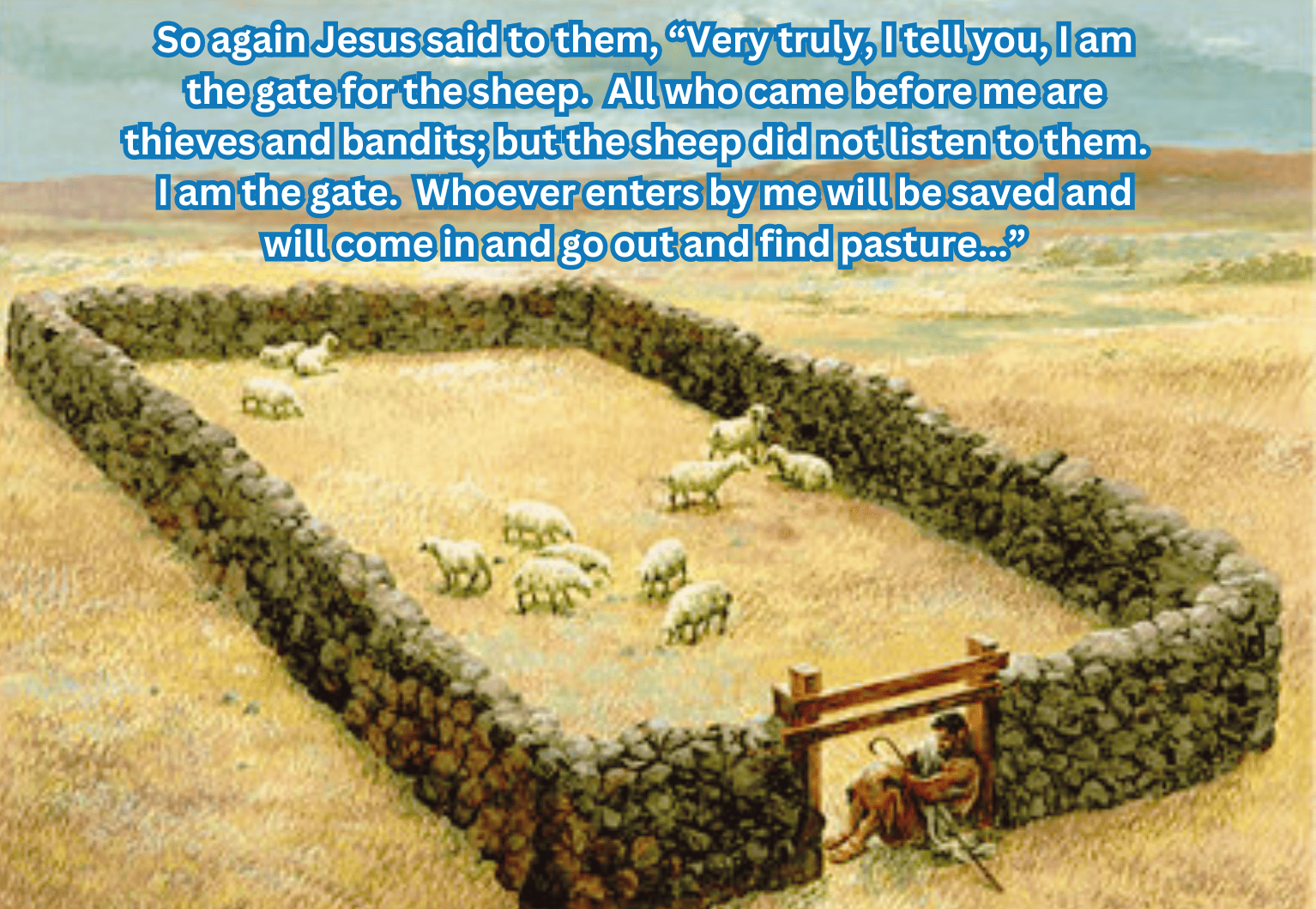
December 11, 2023
The Good Shepherd
I am the good shepherd. The good shepherd lays down his life for the sheep. John 10:11
So he told them this parable: ‘Which one of you, having a hundred sheep and losing one of them, does not leave the ninety-nine in the wilderness and go after the one that is lost until he finds it? When he has found it, he lays it on his shoulders and rejoices. And when he comes home, he calls together his friends and neighbours, saying to them, “Rejoice with me, for I have found my sheep that was lost.” Luke 15:3-6
One of the wonderful things about Jesus’ birth story in Luke’s gospel is that the shepherds are the first to receive the good news of his birth. This falls in line with Luke’s emphasis on God’s care for the poor and people who have been relegated to the margins of society—just as shepherds would have been. But it also prefigures that Jesus would call himself the Good Shepherd.
The Good Shepherd cares for the sheep enough to be willing to lay down his life for them—and also to seek out the one who is lost. Jesus, as the embodiment of the Living Divine, gives us a glimpse into the very heart of God. God’s love seeks us out when we have wandered away from our best selves and feel like anything but a child of God. And the Living Divine rejoices when we come to ourselves.
When I think of the Good Shepherd I recall two memorable sermons I’ve heard. The first was by our former executive presbyter, who reminded us that pastors are more like sheep dogs. We’re not The Good Shepherd and don’t have to be (that’s Jesus’ job), but we take part in the work. The second was by Rev. Jeremiah Wright, who told us that sheep get lost six feet at a time. Six feet doesn’t sound like much at first. But consider how easily distracted we can become – whether it’s a lingering resentment here, an act of self-indulgence there, a dismissive “I’m too busy” here, a moment of unkindness there – and you realize that straying even just a few feet each time begins to add up, until we suddenly find ourselves miles away from our shepherd.
This Advent might be a good time to remember that—no matter how far you or I might have wandered from the work of loving God, others, and ourselves and being meaningfully engaged in the community of faith—God’s heart will find you and this particular sheep dog will run to greet you on your return.
Prayer: Good Shepherd, keep me close to You and remind me that I am always in Your care. Renew my commitment to reaching out to those who may feel far from Your loving presence. Amen.
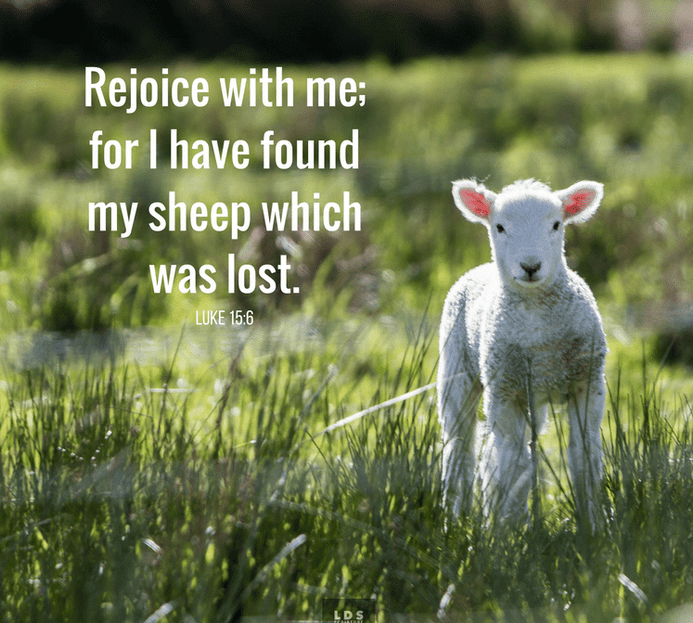
December 10, 2023
Adonai, or Jesus is Lord
But the angel said to them, ‘Do not be afraid; for see—I am bringing you good news of great joy for all the people: to you is born this day in the city of David a Saviour, who is the Messiah, the Lord. - Luke 2:10-11
Therefore I want you to know that no one who is speaking by the Spirit of God says, “Jesus be cursed,” and no one can say, “Jesus is Lord,” except by the Holy Spirit. - I Corinthians 12:3
Perhaps the oldest creedal affirmation in the Christian tradition is the simple confession that “Jesus is Lord.” It spoke to his divine nature (the Jewish tradition called God Adonai—or Lord, as in “Hear O Israel, the Lord is One"). In the first century, some of the Roman Emperors demanded to be called—and treated as—Lord and God. So to say that Jesus was Lord was a way of claiming that, despite Caesar’s demand for utter devotion from his subjects, the Roman Emperor wasn’t.
The word Lord, then and now, has political overtones. To name Jesus as Lord is to regard him as one who merits my ultimate allegiance. If Jesus truly is Lord of my life, then I put him and following in his way ahead of all else, including not just my own ego, but also my devotion to country, political leaders, and ideology. The good news of great joy that the angel proclaimed at his birth is for all people, not just one nation or group.
In this time of increasing division and the rise of “Christian nationalism,” we have to be particularly wary of how easily devotion to country and political leaders can override what we know to be Jesus’ embodied priorities of love, justice, mercy, and care for the vulnerable. We set those priorities aside at our spiritual peril.
In the 1930’s, a group of Christian pastors in Germany came together to write a document called the Barmen Declaration, which became a manifesto for what became known as the Confessing Church. The Barmen Declaration was clear in saying that Jesus was Lord, which meant that Hitler wasn’t. The people who crafted and adhered to it would eventually lead members of their churches to engage in brave acts of resistance, including hiding Jews whose lives were threatened.
Jesus is Lord. Which means that the power of love and not the love of power is our guiding principle. How are you and I living that truth in all of life?
Prayer: Lord Jesus, keep me ever mindful that my ultimate devotion belongs to You and Your way of love. In trying times, lead me in that way. Amen.

December 9, 2023
Pioneer, Perfecter, and….Penguin?
Therefore, since we are surrounded by so great a cloud of witnesses, let us also lay aside every weight and the sin that clings so closely, and let us run with perseverance the race that is set before us, looking to Jesus the pioneer and perfecter of our faith, who for the sake of the joy that was set before him endured the cross, disregarding its shame, and has taken his seat at the right hand of the throne of God. Hebrews 12:1-2
The author of the book of Hebrews calls people to “look to Jesus, the pioneer and perfecter of our faith.” The Greek word translated ‘pioneer’ there means something more precisely like instigator—the one who gets things started. But I like the additional connotation that comes along with the word pioneer—the one who goes ahead of us to blaze a trail. And the word rendered in the NRSV as ‘perfecter’ might better be understood as the one who lives into wholeness or completion. The rest of us humans have to make due with what my friends call, “progress and not perfection.” Regardless, the soul that was incarnate in Jesus went and continues to go on ahead of us to get things started and to show us the way to live a fulfilled life.
Some years ago, at a Session retreat, Sharon Jones talked about a company that annually gave out what they called “The First Penguin” award. It was a nod to the fact that some penguin has to be the first to dive off the iceberg, braving the threat of predators in search of food. Someone has to go first, to take a risk and try something new, even if they might fail. Someone has to be willing to try to bring fresh ideas and vision into an institution that may have lost its sense of purpose or otherwise fallen into complacency, even if that comes at a cost. We need a first penguin. In some ways, that’s exactly what Jesus was.
When I feel like I’m playing it a little too safe, holding back on speaking a challenging word, or avoiding the harder work of life, ministry, and leadership, it behooves me to look to Jesus, the pioneer and perfecter of our faith. He lived and loved boldly and vulnerably—and in so doing, showed the way to what real, full, abundant life looks like. It doesn’t come with a 100 percent approval rating (but nothing ever will). It doesn’t come without a cost, as the one who endured the cross will tell you. The way of Jesus always does. But you can bet your life it is worth it.
Where have you followed Jesus into newness or risk and out of your comfort zone? How has Jesus been a pioneer and perfecter in your life, helping you ‘run with perseverance’ the race that is set before you?
Prayer: Pioneer and Perfecter, help me follow where you lead. Empower me to take risks for the sake of loving You, others, myself, and creation. Remind me that you go before me and beside me into the hard and human work of life and living.

December 8, 2023
Immanuel, God with Us
All this took place to fulfill what had been spoken by the Lord through the prophet, “Look, the virgin shall conceive and bear a son, and they shall name him Emmanuel,” which means, “God is with us.” Matthew 1:21
There are all sorts of church names out there. Some are named for their city, town, or street location, sometimes followed by an ordinal number like First or Second. Some are named for a particular saint or other historical figure—like St. Andrew or John Calvin. Some are named for a Biblical place, like Bethel or Mt. Horeb, or an event, like Ascension or Resurrection. And many take a name that was assigned to Jesus: Lord of Life, Good Shepherd, Prince of Peace. I’m kind of partial to the name of our congregation: Immanuel.
Immanuel, or Emmanuel as it is sometimes rendered in scripture, is a word that speaks to Incarnation--the idea that the Divine Love took on flesh in the human person of Jesus. For me, this is what the primary purpose of any church is all about, to follow Jesus in the work of embodying, incarnating, God’s love to one another and to the larger world. It is as simple—and as challenging—as that.
As a pastor, I get to participate in that work—and I have a front row seat for the ways people make God’s love incarnate in their words and deeds. Making meals for grieving families, providing a listening ear, serving in our hypothermia shelter, going on international mission trips, volunteering at SHARE, working in countless other areas to make a difference for those in need. God is with us in the welcomed embrace, the expression of condolence, and the challenging word spoken with care. God is with us when we choose forgiveness and reconciliation. God is with us in little kindnesses, bold advocacy, and risks taken for the sake of compassion and justice. God is with us in our all too human flaws and foibles, in pain and heartache, and in joy and celebration. The Living Divine is with us in all of life, if we could just be more open and attuned to perceiving that presence.
God is with us. We are not alone. That’s what the soul that became incarnate in Jesus came to show humanity—in his birth, life, death, and resurrection. In his teaching, in his healing, and in his very way of being Jesus modeled that for his first disciples and for us. And he invited them—and continues to invite us—into that work.
Prayer: O Come, O Come Emmanuel. Let the Spirit that was in You dwell fully in me so that I can be about Your work of embodiment the love and presence of the Divine. And when I feel lost, alone, or overwhelmed by sadness and grief, remind me that You are present in all that it means to be human, even when I can’t always sense that. Amen.
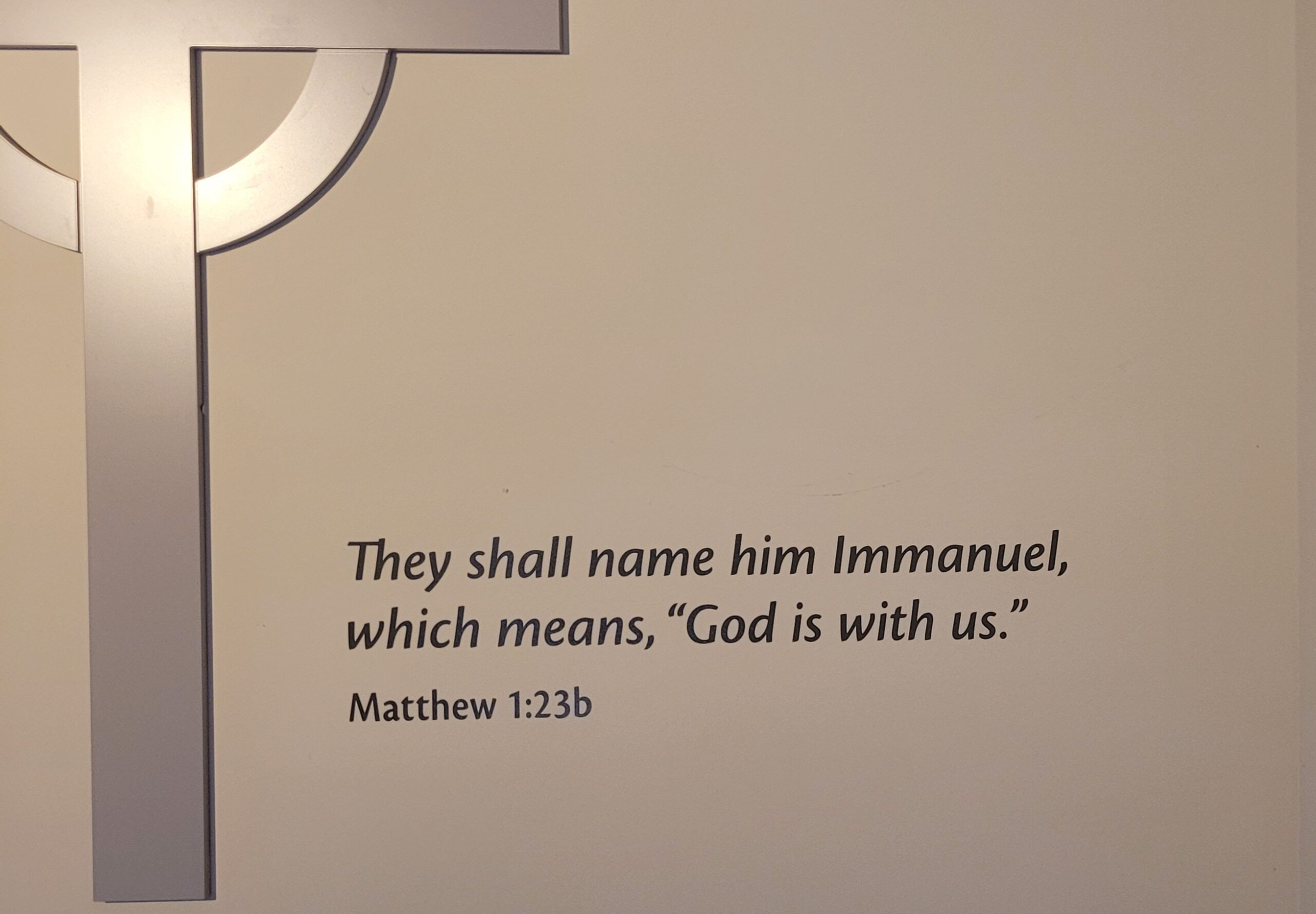
December 7, 2023
King of Kings/Desire of Nations
Jesus answered, “My kingdom is not from this world. If my kingdom were of this world, my followers would be fighting to keep me from being handed over to the religious authorities. But as it is, my kingdom is not from here.” Pilate asked him, “So you are a king?” Jesus answered, “You say that I am a king.” John 18:36-37a
The sixth of the O Antiphons begins, O Rex Gentium, which can be translated as King of the Nations. Handel’s Messiah comes to mind. I hear the booming, “King of Kings, and Lord of Lords, forever and ever!” I think of how Matthew’s gospel tells of the wise men coming from the East to Jerusalem and asking, “Where is the child who has been born King of the Jews? For we have observed his star at its rising and have come to pay him homage.” That the sages from the East came to be referred to as kings was a way of pointing to how the Gentiles, the other nations, would recognize and honor Jesus’ rule.
I’m not a fan of kingship and kingdom language when it comes to Jesus, in part because it comes with overtones of dominance and monarchy rather than community and kinship. At the same time, to say that Jesus is King and God is sovereign means that in and through him God’s sovereign love somehow holds sway in my life and over the world. I want to affirm that and yet that has not always been readily apparent.
When I think of how our larger Christian tradition claims that Jesus is the Rex Gentium, it causes me to examine what that Kingship looked like and what Jesus claimed about himself in that regard. He eluded the people in John’s gospel who, after he fed the five thousand, tried to seize him by force and make him king. He told Pilate that his kingdom was not of this world. He rejected the Tempter’s offer to give him all the kingdoms of the world if he’d only forsake his allegiance to God. He bled out under a sign that read, “Jesus of Nazareth, King of the Jews,” but only after asking divine forgiveness for those who’d hung him there. He actively cared for the poor, the immigrant, the sick and the imprisoned—and told his followers when they cared for such as them, they were caring for him. He exhorted his disciples to forgive their enemies and to pray for those who persecuted them. All in all, that’s a very different notion of power and authority than most rulers would embrace.
With that in mind, I love how O Come, O Come, Emmanuel renders the Rex Gentium antiphon: “O Come Desire of Nations bind, all peoples in one heart and mind. Bid envy, strife, and discord cease. Fill the whole world with heaven’s peace.” That is a vision, and a reign, worth working towards.
Prayer: King of Kings and Desire of Nations, conquer my heart with your loving Spirit today and every day. Fill the whole world with heavenly peace: peace marked by justice, compassion, and a sense that every human has inherent value and dignity as your child—regardless of where they live, what language they speak, and what religion they practice (or do not). Amen.
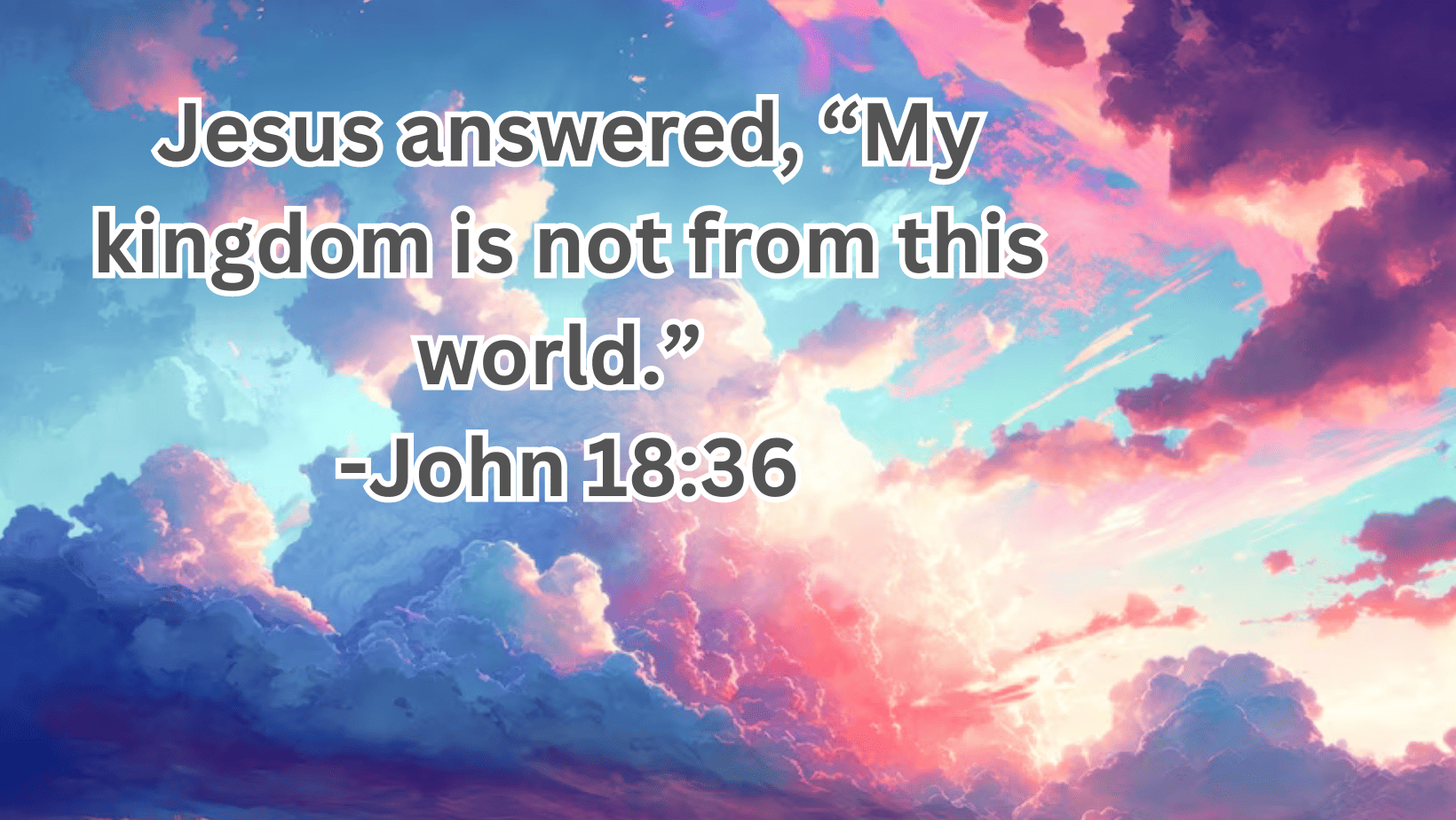
December 6, 2023
Dayspring Come and Cheer
Arise, shine, for your light has come, and the glory of the Lord has risen upon you. For darkness shall cover the earth, and thick darkness is over the peoples; but the Lord will arise upon you and his glory will appear over you. Nations shall come to your light, and kings to the brightness of your dawn. - Isaiah 60:1-3
“O Come, Thou Dayspring, come and cheer, our spirits by Thine advent here. Disperse the gloomy clouds of night, and death’s dark shadows put to flight.” This sixth verse of O Come, O Come, Emmanuel assigns Jesus the name of Dayspring (or “Oriens” in Latin, which means the East—the place we look to find the dawn). This reminds me of the start of another of my favorite Advent hymns: “People, look east, the time is near…”
I don’t think it’s an accident that one of the O Antiphons links Jesus with the dawn. There’s something special about watching the sun come up after a long night. “Weeping may linger for the night, but joy comes with the morning,” says the Psalmist. Dawn reminds us that the gloom of night doesn’t last forever and that the old saying, “This, too, shall pass,” is in fact true. Or as Annie put it, “The sun will come up tomorrow. Bet your bottom dollar that tomorrow, there’ll be sun.”
It can be difficult in the midst of crisis and tragedy, or when it feels like despondency and despair have settled on us like a heavy blanket, to remember that the sun will in fact come up tomorrow. When we are in the throes of loss and mourning, we can begin to think we will never experience joy again. When nights seem endless, we can forget that there will be a dawn. Which is why I think at least occasionally beholding a sunrise is important, even for those of us who are not morning people.
It dawns on me (see what I did there?) that seeing Jesus as the Dayspring helps me hold onto hope even in the worst of circumstances. The sun will come up. A new day will dawn. Joy will return. And somehow, some way, death will not get the last word. Love will.
Prayer: Whenever I feel overwhelmed by life and all that it brings, come, O Dayspring and remind me of your power to bring life out of death and light out of the gloom of night. Amen.
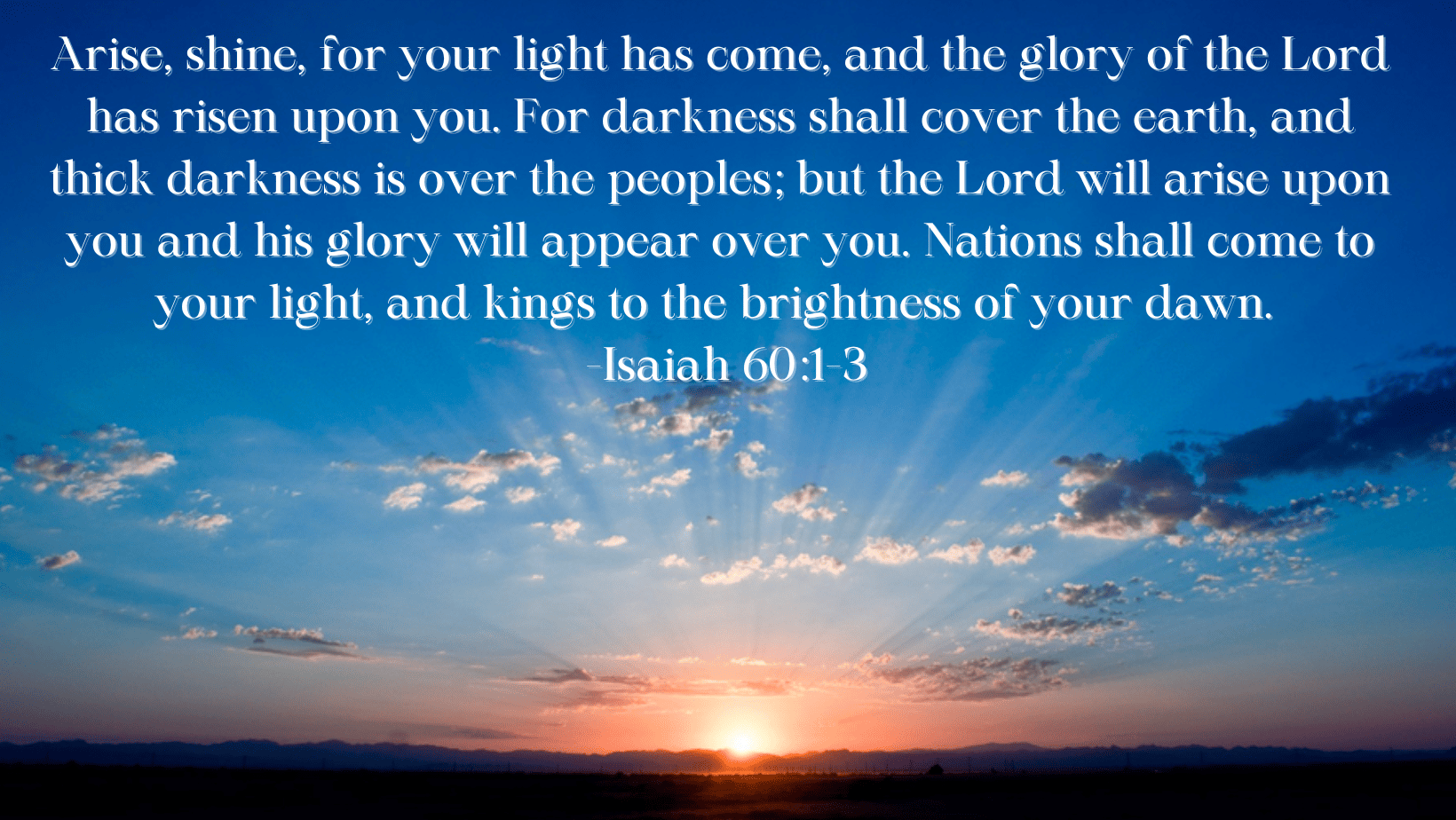
December 5, 2023
Key of David
I will place on his shoulder the key of the house of David; he shall open, and no one shall shut; he shall shut, and no one shall open. Isaiah 22:22
I will give you the keys of the kingdom of heaven; whatever you bind on earth will be bound in heaven, and whatever you loose on earth will be loosed in heaven. Matthew 16:19
“O Come, thou Key of David, come, and open wide our heavenly home; make safe the way that leads on high and close the path to misery.” So begins the fifth verse of O Come, O Come, Emmanuel. Our Christian tradition has viewed Jesus as that Key, the One who comes to open closed hearts and minds and to close off the way that leads only to sorrow and despair.
Few things in life are more frustrating than encountering a locked door that you want to enter and not being able to find the key to open it. I have had the experience of trying any number of keys on a key ring and finding that none of them seemed to work on a particular lock, no matter how I tried to force them. If you want to get in, you need the correct key.
When I first came to sobriety, I learned that the key to recovery started with admitting my powerlessness over alcohol and that my life had become - or was certainly becoming - unmanageable. Following on that, I had come to believe that a power greater than myself (One I’d already begun to serve, of course) could restore me to sanity. Then I needed to turn my will and my life over to the care of the God of my understanding in a more complete way than I ever had before. There are nine more steps after those three, but those first three are key, because they involve letting go of the idea that we can go it on our own and then actively receiving the help of a power beyond us. That’s the key.
Jesus, as the embodiment of the Divine Love and Wisdom, is key for me. He teaches, models and enables me to tap into the power that only comes in vulnerability; the strength that only comes in surrender, and the joy that can come in letting go of things like resentment, fear, and the need to control people, places and things. That’s key.
Prayer: O Key of David, unlock the places in my heart that are closed by resentment, fear, and the illusion of control. Open me to be a channel through which your grace and love flows out to others and the whole world. Amen.
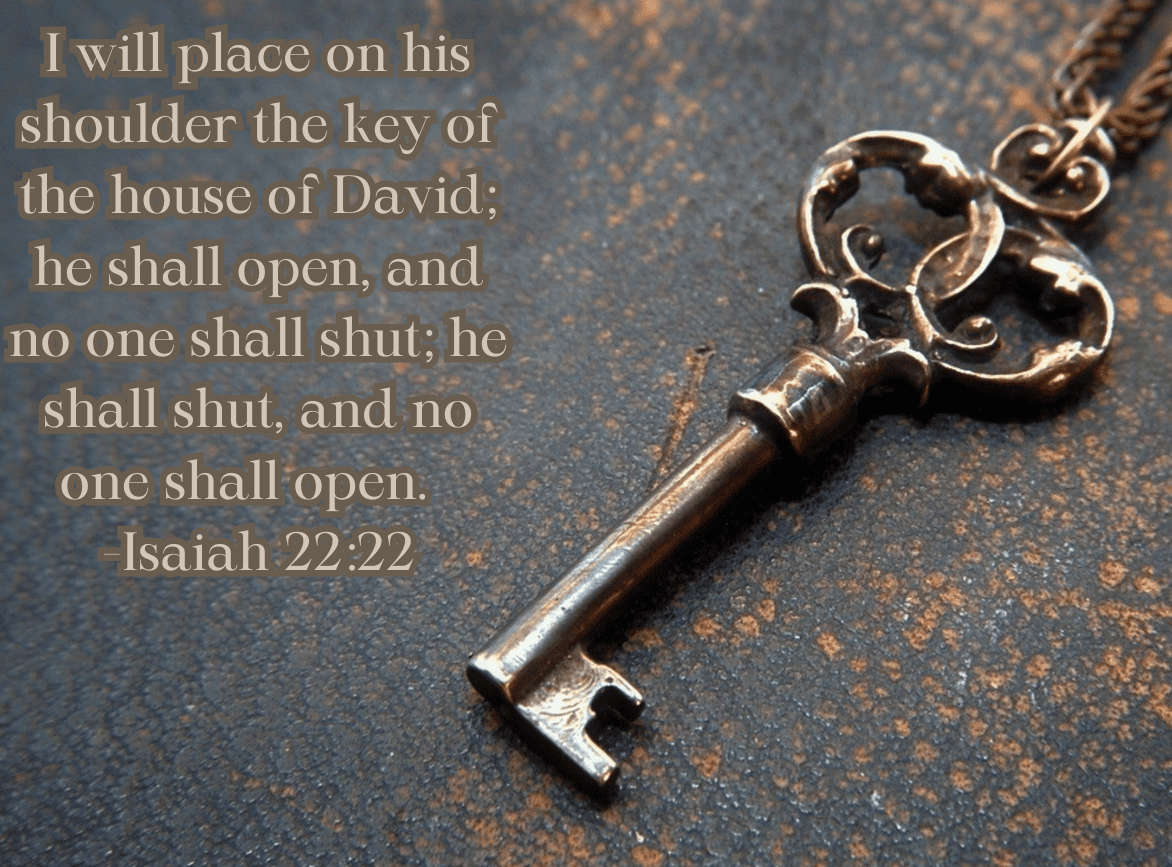
December 4, 2023
Wisdom from On High
Where are the wise? Where is the teacher of the law? Where is the philosopher of this age? Has not God made foolish the wisdom of the world? I Corinthians 1:20
When the Apostle Paul was trying to communicate the good news of God’s grace to the church at Corinth, he spoke of how the Wisdom of God was embodied in the life, death, and resurrection of Jesus—and how in and through that, God made foolish the wisdom of the world.
In our Tuesday morning Men’s Bible Study group, we’ve just started reading Krista Tippett’s marvelous book, Becoming Wise. In our initial reflections, the group generated several hallmarks of wisdom: among other things, it has a humble appreciation for mystery, it bravely embraces vulnerability, it is often born of hard-won experience (though it can also come from the mouth of a child), and it sees life in eternal perspective.
When I consider Jesus, the one the hymn addresses as “O Wisdom from on High,” I think of the counterintuitive nature of the Beatitudes. Blessed are the poor, the meek, those who mourn, the merciful… I think, too, of the way he forgave those who crucified him—and that he was willing to put himself in that position to start with. And I think of the way he was born in a stable and not a palace. All of these things run counter to what some might consider wisdom.
What difference does seeing and learning from Jesus as the living embodiment of God’s wisdom play in the way you make decisions in life? How have you come to appreciate mystery, embrace your own vulnerability, and to see life from the perspective of eternity?
Prayer: Come thou Wisdom from on high! Teach me to live a life that is willing to take risks for the sake of being a blessing to others. Help me to both live fully in the here and now and to see my life in the context of eternity and my connection to You and the whole created order. Amen.
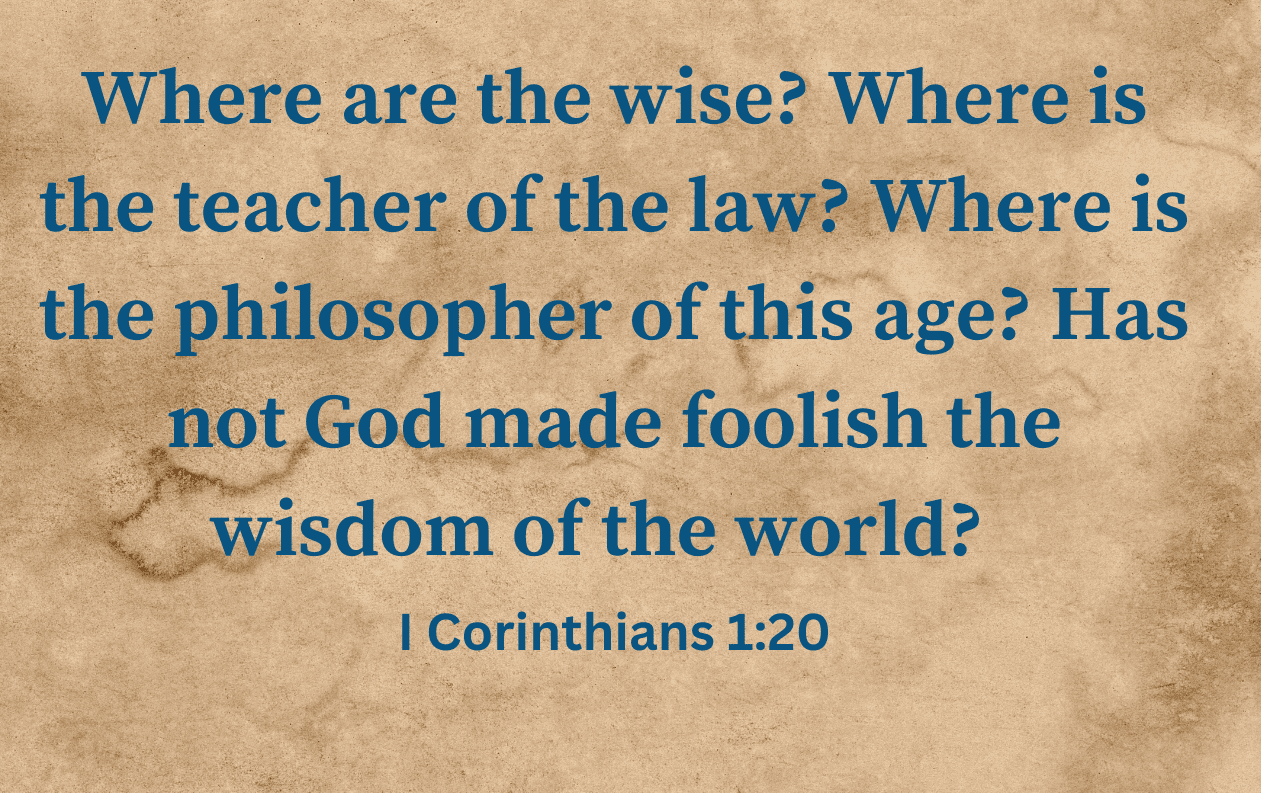
December 3, 2023
Root, Shoot, and Branch
The days are surely coming, says the Lord, when I will fulfill the promise I made to the house of Israel and the house of Judah. In those days and at that time I will cause a righteous Branch to spring up for David; and he shall execute justice and righteousness in the land. Jeremiah 33:14-15
On that day the root of Jesse shall stand as a signal to the peoples; the nations shall inquire of him, and his dwelling shall be glorious. Isaiah 11:10
The famous Advent hymn “O Come, O Come, Emmanuel” is based on what are known in the Catholic tradition as the seven O Antiphons. They are an ancient liturgical tradition that dates back to at least the 6th century. The antiphons contain names for Jesus typically used or recited before the signing of the Magnificat in vespers services in the last 7 days before Christmas: Wisdom, Lord, Root of Jesse, Key of David, Daystar, King of Kings, and Emmanuel. I’ll be unpacking them in the days ahead, beginning with Root of Jesse.
The prophets Isaiah and Jeremiah spoke of the root of Jesse, the righteous Branch springing up for David, and the shoot that shall come forth from the stump of Jesse. Christians have long viewed Jesus as the One who came to be the embodiment of this root, shoot, and branch. What each of these images have in common is the sense of new life and growth emerging from what came before. Springing forth, as it were.
Naming Jesus as root, shoot, or branch helps me remember the importance of the past and the possibility of new life in the future, but it also helps me to focus on what is growing in and among us right here and now. Is it resentment and hostility or healing and grace? Is it anxiety or bold trust? Estrangement or peace and reconciliation? How can you and I perceive and participate in the righteous Branch springing up to execute justice and righteousness in the land? Where are Jesus’ teachings about the love of God, others, self and creation coming to bud, flower, and fruit in our lives? Where is something new and true branching out and blossoming in me and you?
Prayer: Root of Jesse and Righteous Branch of David, bring new growth in me and fresh hope to our world. Keep me grounded in justice and compassion and let my life be a living example of how Your Divine Love springs forth! Amen.
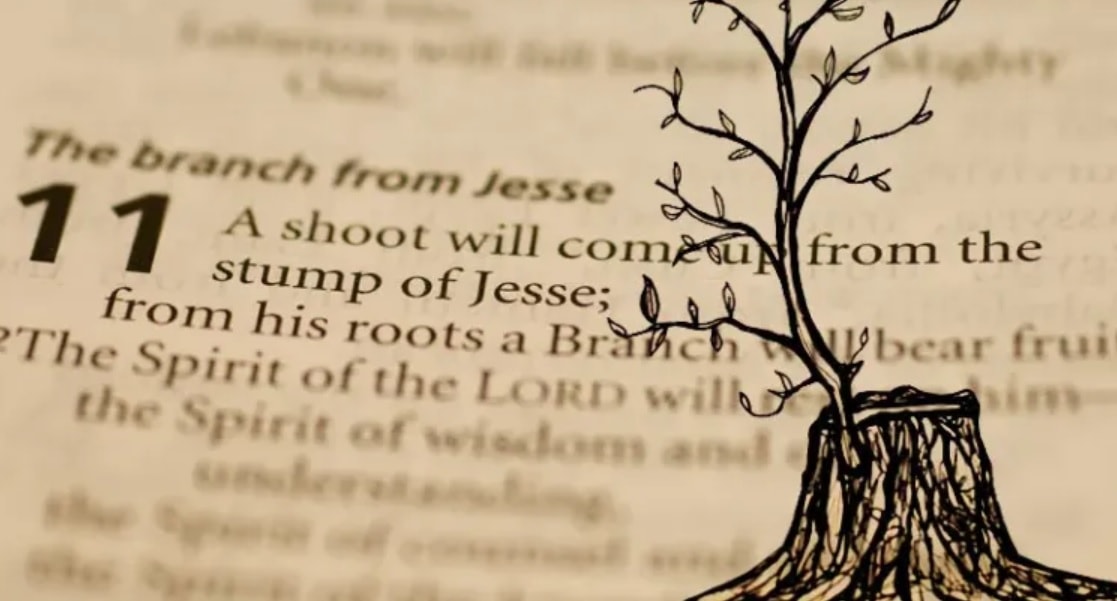
December 2, 2023
Beyond a Messiah/Christ Complex
Andrew found his brother Simon and said to him, “We have found the Messiah” (which is translated Christ—or anointed one). He brought Simon* to Jesus, who looked at him and said, ‘You are Simon son of John. You are to be called Cephas’ (which is translated Peter). John 1:40-42
One of the most common designations for Jesus in the New Testament is Christ (the Greek word for Messiah, or anointed one). In Luke, the angel tells the shepherds in Bethlehem, “Unto you is born this day in the city of David, a Savior, who is the Messiah, the Lord.” In John’s Gospel, when Andrew first meets Jesus in the Gospel of John, he runs to tell his brother Simon that he has found the Messiah. When Jesus asks his disciples, “Who do you say that I am?” Peter replies, “You are the Messiah.”
And John the Baptist, when posed the question “Who are you?” starts by saying, “I am not the Messiah.” Which I suppose was another way of affirming, “There is a Messiah, and it is not me.” A good thing to keep in mind when we get confused about how much we can actually control in life.
In the Jewish tradition, the Messiah was to be the one set apart, anointed by God, to save the people. People had specific ideas about how the Messiah would act and how the saving was to occur, and they wouldn’t have involved being born in a mucky stable, or riding into Jerusalem on a humble donkey, or dying as an object of scorn on a cross. Such divine vulnerability can still be perceived as weakness, but the gospels want to affirm that this is where real saving power can be found. Not in fixing every problem, preventing every consequence, healing every illness, or triumphing in every battle (military or otherwise). God’s saving power isn’t evident in wish fulfillment, but in the embodiment of love even in what seem like the worst of circumstances.
As a friend of mine puts it, “The soul that incarnated as Jesus became the Christ. Let us follow the way he modeled.” How can we experience God’s love and presence even when life doesn’t unfold the way we’d like? How can we do our part to bring God’s love and presence to bear for others and the world, keeping in mind that we don’t have to be the Messiah, but we can take part through our actions in what the Jewish tradition calls tikkun olam: the mending of the world? Those are good Advent questions.
Prayer: Holy One, remind me that I don’t have to be the Messiah, but I can take part in making a positive difference in the world. Help me experience the saving power of love and presence this Advent, even as we all await the celebration of Incarnation at Christmas. Amen.
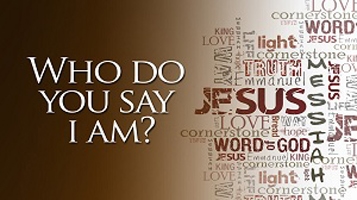
December 1, 2023
Jesus Saves
But just when he had resolved to do this, an angel of the Lord appeared to him in a dream and said, ‘Joseph, son of David, do not be afraid to take Mary as your wife, for the child conceived in her is from the Holy Spirit. She will bear a son, and you are to name him Jesus, for he will save his people from their sins.’ (Matthew 1:20-21)
A study based on the names used to refer to Jesus should probably start with the name Jesus itself. Jesus is the Greek word for Joshua, which means “he saves.” Advent is a great time to think about what we might need to be delivered from—and how exactly the One whose birth in Bethlehem we will celebrate later this month saves us.
There are people who will tell you that what Jesus saves us from is a literal hell, defined as eternal conscious torment. Since I just can’t conceive of a loving God who would consign anyone to that, I think of salvation differently—in terms of what makes us whole in the here and now and not just in some hereafter.
Jesus saves by modeling a different way to live—one that gets us outside of self-preoccupation (which can be hellish) and leads us into grateful service. Jesus saves by demonstrating that it is possible to love and pray for enemies rather than hating them. Jesus saves by offering us a life of meaningful purpose, and a community of support, and an assurance that love is stronger than death, sin, and evil. In this Advent season which can become so hectic, Jesus also saves by reminding us that our worth is not contingent on what we do. We are loved and accepted as we are.
Barbara Brown Taylor poses this question in her marvelous book, Leaving Church: “What is saving your life today?” How would you answer that? And how does the answer you provide also speak to how your soul—the essence of who you are and what you are meant to be—is being saved this very day?
Prayer: Holy One, help me in this Advent season to be delivered from resentment, despair, self-preoccupation, and isolation. Save me from my worst impulses. Help me to live more fully in Your peace, hope, joy, and love. Amen.
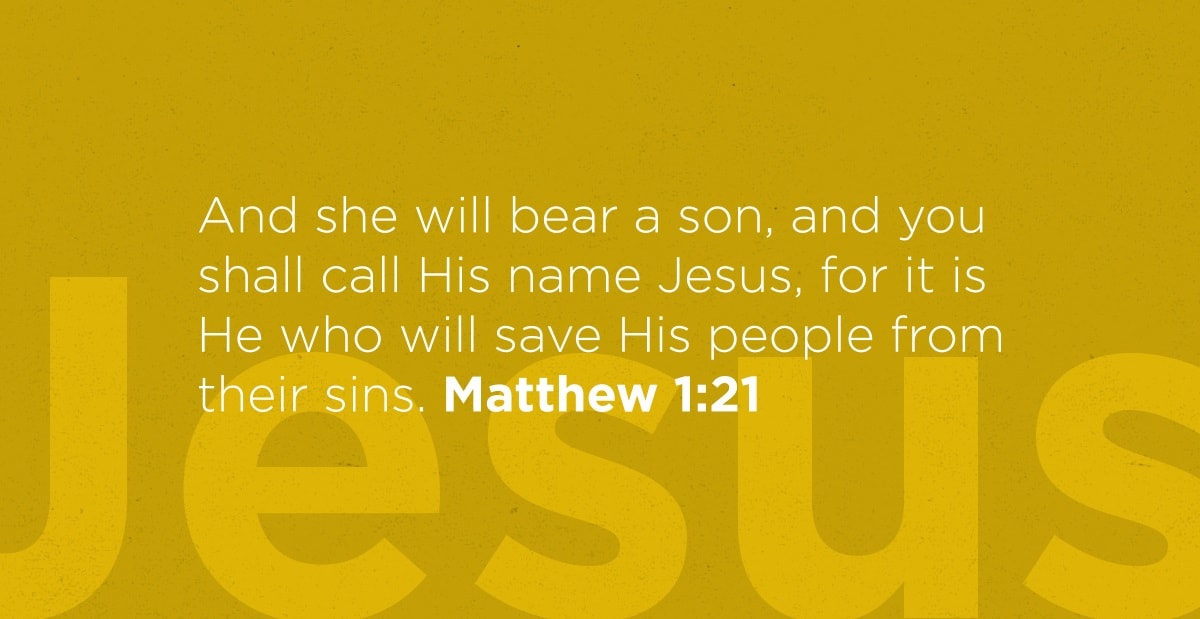
November 30, 2023
What’s In a Name?
The angel said to her, “Do not be afraid, Mary, for you have found favor with God. And now, you will conceive in your womb and bear a son, and you will name him Jesus. He will be great, and will be called the Son of the Most High, and the Lord God will give to him the throne of his ancestor David.” (Luke 1:30-32)
This Advent at Immanuel, we will be exploring the different names that are used to refer to Jesus in scripture. As we begin that journey, I invite you to think about your own name(s). Were you named after someone? What is the etymology of your name? Does it have some sort of special meaning? Do you have any nicknames?
I don’t actually know why my parents chose the name Aaron for me, but I do know that in Hebrew it is linked to the words for “high mountain” and “exalted one.” That’s quite a name to live up to, or maybe to live down. I know that Moses’ brother was named Aaron, and that he a) was known as Moses’ spokesman, b) was regarded as a priest and c) fashioned the golden calf. With a name like Aaron, maybe it’s fitting that I wound up as a clergy person.
By my count, there are at least 25 different names used for Jesus in the Bible. Some of them he assigns to himself, others are given to him. But all of them can help us understand how the Living Divine can be experienced in the world and in our lives. As we enter Advent this year, I hope you will join me starting tomorrow for 25 days of daily reflection on the names of Jesus.
Prayer: Holy One, as I ready myself for this Advent journey towards the celebration of the birth of Jesus, open me to new insights into what the names used for him mean. Create in me a deeper sense of connection to You, to others, and to myself, so that I may more fully live into my identity as a child of God. Amen.
